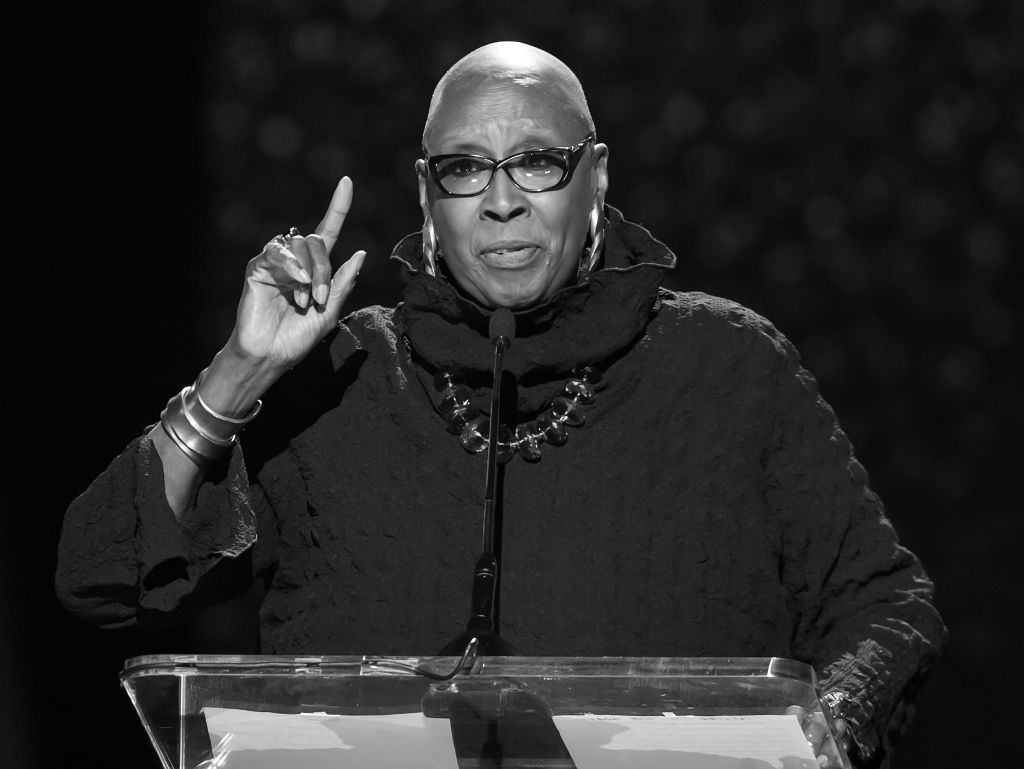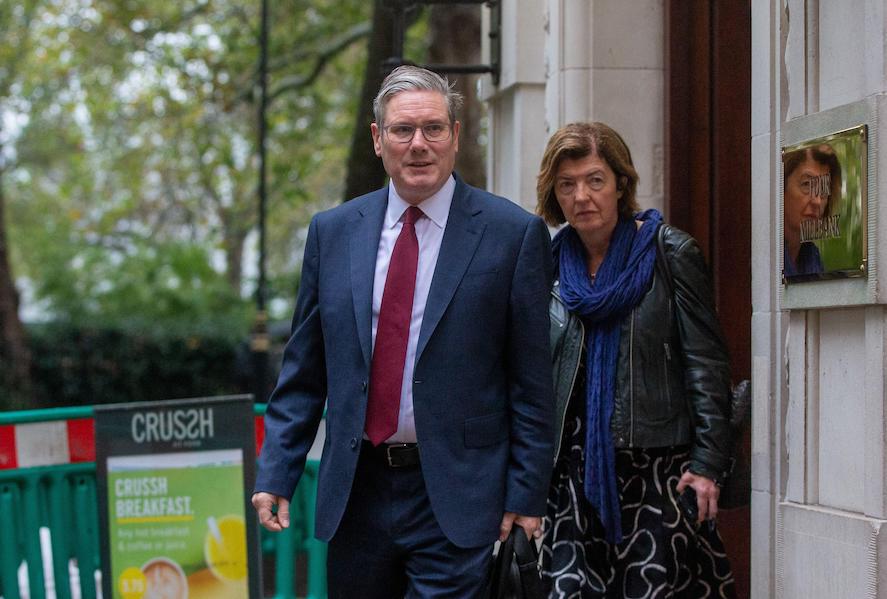As elections in the United States draw closer, polls indicate that former President and convicted felon Donald Trump could be back in the Oval Office by early 2025.
For an indication of what a second Trump administration might look like, look no further than Project 2025, a transition plan spearheaded by the Heritage Foundation, a prominent conservative think tank in Washington, DC.
The 922-page doorstopper is essentially a how-to guide for a right-wing model of governance, proposing a dramatic overhaul of the federal government with plans to expand presidential power and purge the civil service of “liberals” – all the better to advance a hardline agenda.
While largely focused on dismantling the “Deep State”, the document also offers pointers on foreign policy, striking a hawkish tone on China – “the most significant danger to Americans’ security, freedoms, and prosperity” – prioritising nuclear weapons production and curtailing international aid programmes.
Read on for more on Project 2025’s vision for the US and its relations with the world. What’s driving this policy agenda? And should we all be worried?
How does Project 2025 see America’s place in the world?
On defence and foreign policy, Project 2025 aims for a definitive break with the administration of President Joe Biden.
Christopher Miller, who served as defence secretary under Trump, slams Biden’s track record in the project’s hefty Mandate for Leadership section, speaking of “disturbing decay” and a “dangerous decline” in the “nation’s capabilities and will”.
The signs are all there, Miller says, pointing to the “disastrous withdrawal from Afghanistan, our impossibly muddled China strategy, the growing involvement of senior military officers in the political arena, and deep confusion about the purpose of our military”.
Overall, Project 2025 has plans for a foreign policy that Allison McManus, managing director of the Center for American Progress, a Washington, DC-based liberal think tank, told Al Jazeera would have long-term costs for the world because it would prioritise the military over humanitarian programmes.
“There will be huge costs when it comes to food insecurity, climate insecurity and conflict,” she said. “I think we will see millions, billions of people suffer globally. We will see reverberations around the world.”
What are some of Project 2025’s key foreign policies?
Here are some of the highlights:
Taking on China
China is the project’s main defence concern. Miller fears the country is “undertaking a historic military buildup”, which “could result in a nuclear force that matches or exceeds America’s own nuclear arsenal”.
He wants to prevent China from subordinating Taiwan or allies like the Philippines, South Korea and Japan, thus upsetting the “balancing coalition … designed to prevent Beijing’s hegemony over Asia”.
While the US tackles what Project 2025 presents as Beijing’s belligerence, Miller wants US allies to “step up”, some helping it to take on China, others taking more of a lead in “dealing with threats from Russia in Europe, Iran, the Middle East, and North Korea”.
“There’s a lack of nuance in the view of China,” McManus said.
The Biden administration, she said, has “taken the growth of China in past decades very seriously and prioritised how the US competes in China, making investments in the US industrial base, balancing areas of cooperation, say on climate, with areas of competition in trade and industry”.
Project 2025, she said, applies a “conflict lens to US-China dynamics”.
Ramping up nuclear weapons
Project 2025 wants the US to “modernise, adapt, and expand its nuclear arsenal”.
“All US nuclear capabilities and the infrastructure on which they rely date from the Cold War and are in dire need of replacement,” Miller says in the Mandate for Leadership.
Under Project 2025, nuclear production would be seriously bulked up. Among other things, this would involve accelerating the “development and production of the Sentinel intercontinental ballistic missile”.
It would also involve testing nuclear weapons at the Nevada National Security Site – in defiance of the Comprehensive Nuclear Test Ban Treaty, of which the US is a signatory.
McManus said she sees “an effort to rebrand” with a Reagan-era “peace through strength” approach.
Targeting international aid
Max Primorac, senior research fellow in the Margaret Thatcher Center for Freedom at the Heritage Foundation, dislikes the “woke ideas” being pushed by the US Agency for International Development (USAID).
“The Biden Administration has deformed the agency by treating it as a global platform to pursue overseas a divisive political and cultural agenda that promotes abortion, climate extremism, gender radicalism, and interventions against perceived systemic racism,” he says in the project’s Mandate for Leadership.
The project’s main bugbears appear to be “gender radicalism” and abortion rights.
As Primorac charges, promoting “gender radicalism” goes against “traditional norms of many societies where USAID works”, causing “resentment” because recipients have to reject their own “firmly held fundamental values regarding sexuality” to receive “lifesaving assistance”.
It has also, he alleges, created “outright bias against men”.
He claims that abortion on demand is “aggressively” promoted under the guise of “sexual and reproductive health and reproductive rights”, “gender equality” and “women’s empowerment”.
To counter “woke ideas”, Project 2025 wants to “dismantle” all diversity, equity and inclusion (DEI) initiatives, which it views as “discriminatory”.
Among other things, this would involve scrubbing from all USAID communications references to the terms “gender”, “gender equality”, “gender equity”, “gender diverse individuals”, “gender aware”, “gender sensitive”, “abortion”, “reproductive health” and “sexual and reproductive rights”.
Can Project 2025 be prevented?
If the authors of Project 2025 get their way, there would be little resistance from within the US administration under a Trump presidency to implementing its changes.
The project proposes an overhaul of the federal government, enabling the firing of as many as 50,000 “liberal” workers and replacing them with eager loyalists who have already been listed in a database.
This, McManus said, is the real danger. “What they’ve laid out is the blueprint for remaking the civil and foreign service with ideologues and loyalists,” she told Al Jazeera.
“Dissent is a crucial component of what it means to work in the government. Many officials are dedicating their services towards advancing interests for the good of the people, and sometimes that means dissenting.”
The writing was already on the wall in the last Trump administration, she said. “At the highest levels, we saw several officials standing up to some of Trump’s more dangerous inclinations.”
In 2020, for example, Miller’s predecessor Mark Esper was fired after he disagreed with Trump’s threat to use the military to suppress protests over racial injustice after the murder of African-American George Floyd by police.
What does Project 2025 propose on the domestic front?
Much of the manifesto bears a strong resemblance to Trump’s known policy proclivities with proposals to deport en masse more than 11 million undocumented immigrants and give states more control over education, limiting progressive initiatives on issues such as LGBTQ rights.
But on some issues, it goes even further than Trump’s campaign, calling on federal authorities to ban pornography and reverse approval of a pill used in abortions, mifepristone. It also calls for anyone providing or distributing abortion pills by mail to be prosecuted.
Project 2025 is shot through with religious-right values, pledging to restore “the family as the centerpiece of American life and protect our children”.
It recommends the authorities “proudly state that men and women are biological realities” and that “married men and women are the ideal, natural family structure because all children have a right to be raised by the men and women who conceived them”.
Harking to the theme, Biden’s campaign posted a shot from the dystopian TV drama The Handmaid’s Tale on X, showing women stripped of their identities standing before a cross, captioned with the words “Fourth of July under Trump’s Project 2025”.
Democrats, currently beleaguered by concerns over Biden’s mental fitness for office after his faltering debate performance late last month, have doubled down on efforts to link Project 2025 to the Trump campaign.
Has Trump endorsed Project 2025?
Aware that perceptions of being steered by outside groups might be a vote-loser, Trump claims the transition plan has nothing to do with him.
“I have no idea who is behind it. I disagree with some of the things they’re saying and some of the things they’re saying are absolutely ridiculous and abysmal,” he posted this month on his social media platform, Truth Social.
While Trump has distanced himself from Project 2025, he happens to have close ties with the people who contributed to its launch.
According to journalist Judd Legum, 31 of the 38 people who helped write or edit the project served in some manner in Trump’s administration or transition.
1. Project 2025 is a radical blueprint for a potential second Trump administration, spearheaded by the right-wing @Heritage Foundation
Trump says he has “no idea who is behind” Project 2025 and has “nothing to do with them”
THAT IS A LIE
HERE ARE THE FACTS
— Judd Legum (@JuddLegum) July 8, 2024
These include project director Paul Dans, who was chief of staff at the US Office of Personnel Management under Trump.
John McEntee, former director of the White House Presidential Personnel Office in the Trump administration, acted as a senior adviser on the project.
And project partners include several leading conservative groups with ties to Trump’s campaign, such as Turning Points USA; the Center for Renewing America, run by Russ Vought, Trump’s former director of the Office of Management and Budget; and America Legal First, founded by Stephen Miller, the former president’s immigration adviser.
Should the world be worried?
This won’t be the first time the Heritage Foundation has wielded direct influence on a US administration.
In 1981, at the start of Ronald Reagan’s presidency, it published its first Mandate for Leadership to “rescue the American people from Washington dysfunction”. Sixty percent of its recommendations for battling stagflation and winning the Cold War actually became policy.
Much as Trump denies links with the project, the evidence appears to tell a different story, critics say. The project’s main contributors have also been forthcoming about their connections with the former president.
In February, Dans told a Nashville gathering of religious broadcasters that he intended to serve in a second Trump administration.
And McEntee told The Daily Wire that Project 2025 would integrate a lot of its work with the Trump campaign when the presidential contender announces his transition team.




















Discussion about this post